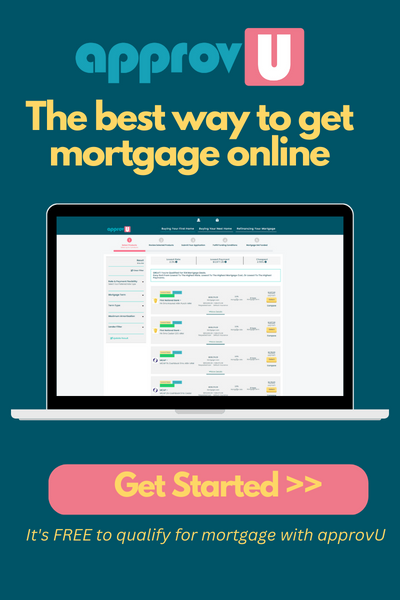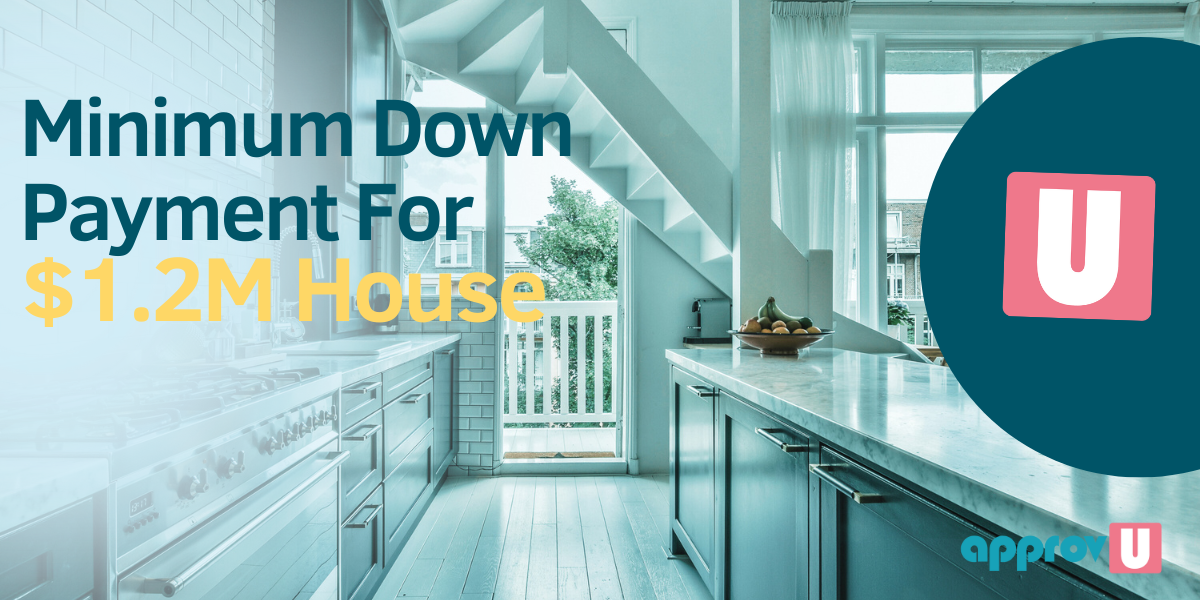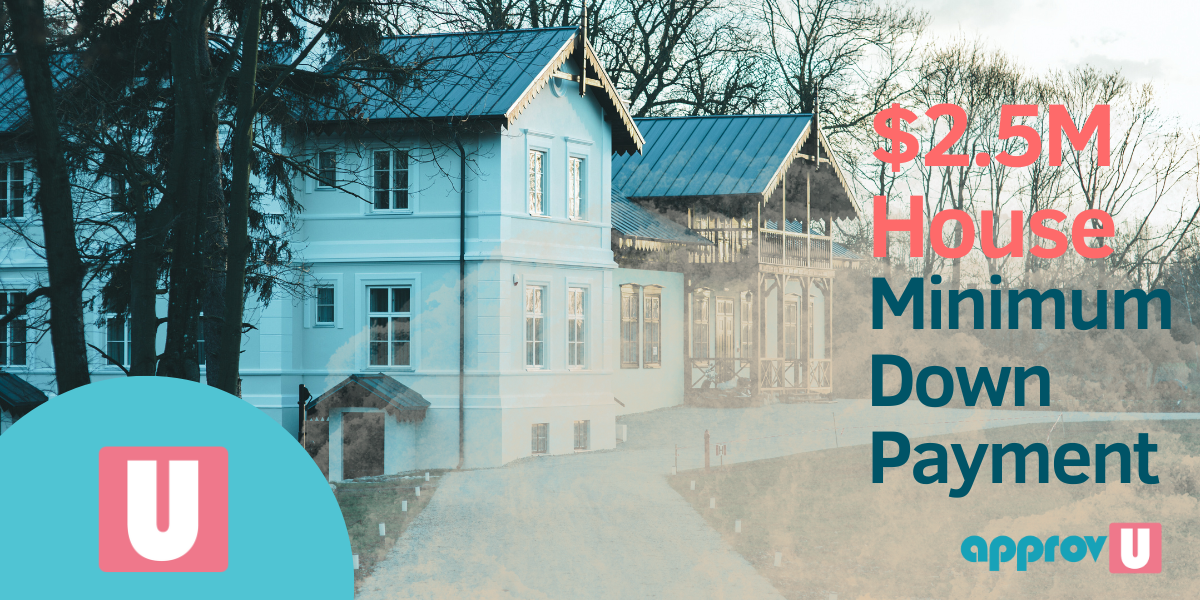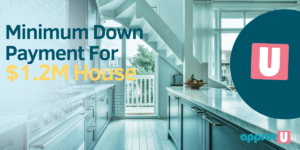Are you considering refinancing your current mortgage or buying a new house?
Choosing the right mortgage lender is one of the most crucial decisions you’ll make during this process.
With so many options available, finding the perfect fit can feel overwhelming.
That’s why we’ve created this comprehensive guide to help you confidently navigate the world of mortgage lending.
From understanding the basics of the mortgage landscape to evaluating customer service and support, we’ll walk you through every step of the process, empowering you to make informed decisions and secure the best financing for your needs.
Whether you’re a first-time homebuyer or a seasoned homeowner looking to refinance, this guide will provide the tools and insights to choose the right mortgage lender and make your dream of homeownership a reality.
Understanding Different Types of Mortgage Lenders
As you search for the perfect mortgage lender, you’ll quickly discover various types of lenders out there.
To help you understand it all, let’s take a closer look at the most common types and their key characteristics.
Traditional Banks
As the most conventional type of mortgage lender, banks like TD, CIBC, BMO, RBC and National Bank typically provide a broad array of financial products and services to buy a new house or refinance existing mortgages.
If you currently hold a chequing or savings account with a bank, you may be inclined to start your search there.
However, it’s crucial to remember that exploring and comparing offers from various lenders is vital in finding the best mortgage for your needs.
Monoline Banks
Another type of mortgage lender you should consider when looking to buy a new house or refinance your existing mortgage is a monoline bank, such as B2B Bank, Equitable Bank, and others.
These specialized banks focus exclusively on providing mortgage financing, which allows them to offer competitive rates and tailored loan products.
Due to their mortgage-centric approach, monoline banks can be a viable alternative to traditional banks for meeting your home financing needs.
As with any mortgage lender, it’s essential to research and compares their offerings to ensure you secure the best loan for your specific situation.
Credit Unions
As member-owned, not-for-profit financial institutions, credit unions can be an excellent option for a mortgage to buy a new house or refinance an existing mortgage.
Credit Unions frequently offer competitive mortgage rates and a more personalized service experience.
To secure a mortgage with a credit union, you’ll need to join as a member, which may involve satisfying specific eligibility requirements.
Some of the most renowned credit unions in Canada are Vancity, Servus Credit Union, Meridian Credit Union and Coast Capital Savings Federal Credit Union.
Online Lenders
With the rise of technology, many online lenders offer a convenient way to apply for a mortgage from the comfort of your home. These lenders often have less overhead and can pass on the savings to you through lower rates and fees.
However, the trade-off might be less personalized service and potentially slower response times.
Assessing Your Financial Situation
Before you start approaching lenders, it’s crucial to have a clear understanding of your financial situation.
This will help you identify the most suitable mortgage products and give you an idea of what to expect from lenders. Here’s what you need to consider:
Credit Score
Your credit score significantly affects your ability to qualify for a mortgage and the interest rates you’ll be offered.
Generally, a higher credit score means better loan terms. Start by obtaining a free copy of your credit report and checking your score. Consider improving it before applying for a mortgage if it’s lower than you’d like.
Debt-to-Income Ratio
Your debt-to-income (DTI) ratio is another critical factor that lenders consider when evaluating your mortgage application.
It’s the percentage of your monthly income that goes toward paying your debts.
Lenders typically prefer borrowers with a DTI ratio of 42% or lower, although some may have more flexible requirements. To calculate your DTI ratio, add all your monthly debt payments and divide by your gross monthly income.
Down Payment
The amount you can afford to put down upfront will also impact the type of mortgage and the interest rates you’ll qualify for.
Generally, a larger down payment results in better loan terms and lower monthly payments.
Aim to save at least 20% of the home’s purchase price to avoid paying mortgage default insurance fees.
Once you have a good grasp of your financial situation and the kind of mortgage you’re interested in, it’s time to research potential lenders and see what they have to offer.
Researching Potential Lenders
Now that you know what you’re looking for in a mortgage, it’s time to start exploring your options.
A little research can go a long way in helping you find the right lender for your needs.
Here’s how to get started:
Seek Recommendations from Friends and Family
One of the best ways to find a trustworthy mortgage lender is by asking friends, family, or colleagues who have recently gone through the mortgage process themselves.
Their experiences and insights can provide valuable information on the lenders they worked with and potential red flags to watch out for.
Check Online Reviews and Ratings
In addition to personal recommendations, online reviews and ratings can be a goldmine of information when it comes to evaluating mortgage lenders.
Websites like Ratehub.ca, RateSpy.com, Lowestrate.ca and approvU.com offer user reviews and rankings that help you understand a lender’s reputation and performance.
Remember that individual experiences can vary, so reading multiple reviews and considering the overall picture is essential.
Professional Affiliations and Certifications
When researching potential lenders, look for professional affiliations and certifications.
These can include membership in organizations like the Canadian Bankers Association (CBA), Mortgage Professionals Canada (MPC) and Canadian Mortgage Brokers Association (CMBA).
By ensuring your lender is affiliated with reputable industry organizations, you can have greater confidence in their adherence to ethical and professional standards.
Local Versus National Lenders
Consider whether a local or national lender fits your needs better.
Local lenders have a more in-depth understanding of your area’s housing market and can often provide personalized service.
On the other hand, national lenders may have access to a broader range of mortgage products and might be able to offer more competitive rates.
Once you’ve gathered a list of potential mortgage lenders, it’s time to compare their rates, fees, and other loan terms to determine the best fit for your financial situation and home-buying goals.
Comparing Mortgage Rates and Fees Across Lenders
With your list of potential mortgage lenders in hand, it’s time to dig deeper and compare their offerings.
Here’s what you need to look for when comparing mortgage rates and fees:
Understand the Mortgage Rates
The interest rate on your mortgage is one of the most critical factors to consider, as it directly affects your monthly payments and the total cost of your loan.
You want to consider rate quotes from multiple lenders and compare the annual percentage rates (APRs).
The APR considers the interest rate and any points, fees, and other charges associated with the loan.
Fixed-Rate vs. Adjustable-Rate Mortgages
You also want to consider the rate type to ensure you are comparing apply-to-apply.
A mortgage rate can either be fixed-rate or adjustable-rate mortgages (ARMs).
Fixed-rate mortgages have a constant interest rate throughout the life of the loan, while ARMs have an initial fixed-rate period followed by periodic rate adjustments.
Each option has pros and cons, so consider factors like how long you plan to stay in the home and your risk tolerance when deciding.
Points and Fees Attached to the Mortgage
Lenders may charge various fees, such as origination fees, underwriting fees, and closing costs, which can significantly impact the overall cost of your mortgage.
Some lenders also offer discount points, allowing you to pay an upfront fee for a lower interest rate.
Be sure to compare these costs across lenders, as they can vary widely and affect your loan’s affordability.
How to Obtain a Loan Estimate
To effectively compare loan estimates from multiple lenders, it is crucial to use a standardized format. approvU makes this process easy with our Standardized Loan Estimator Report.
You will have a standardized estimator report for each mortgage you qualify for.
A Loan Estimate Report provides a comprehensive breakdown of a loan’s terms, including the interest rate, monthly payments, and estimated closing costs.
Using a consistent format for Loan Estimates, you can accurately assess and contrast various mortgage offers, making it easier to identify the most suitable option for your needs and budget.
Evaluating Customer Service and Support
A mortgage is a long-term commitment, and the quality of customer service and support you receive throughout the process can make all the difference.
Here’s what to consider when evaluating the service provided by each lender on your list:
Responsiveness
The mortgage process can be stressful, and having a responsive lender can make things much easier.
Reach out to each lender and your preferred intermediary channels (broker or online) with questions or concerns, and note how quickly they respond. Are they prompt and thorough in their replies, or do they leave you waiting and wondering?
Communication Style
Every individual has unique preferences when it comes to communication.
Some people prefer to communicate primarily via email or online, while others appreciate a more personal touch through phone calls or in-person meetings.
Consider your preferred communication style and choose a lender that aligns with your expectations.
Availability of Resources and Educational Materials
A good lender should provide resources and educational materials to help you understand the mortgage process and make informed decisions.
Look for lenders offering easy-to-understand guides, mortgage calculators, and other tools to help you understand and navigate the mortgage journey.
Loan Processing Time
The time it takes to process and close a mortgage can vary significantly among lenders.
Longer processing times can cause delays and complications, especially in competitive housing markets.
Ask each lender about their typical processing timeline and choose one that meets your needs and expectations.
Prequalification and Preapproval Process
Before embarking on a serious house hunt, it’s crucial to understand the distinctions between prequalification and pre-approval in the home-buying process.
Recognizing how each can benefit you is essential for a smooth and successful experience.
The Difference Between Prequalification and Preapproval
Prequalification is an initial evaluation of your creditworthiness based on the information you provide to the lender, such as income, debts, and assets.
This step gives you a rough estimate of the loan amount you may qualify for, but it’s not a guarantee.
Pre-approval involves a more comprehensive evaluation of your financial situation, with the lender verifying your income, debts, assets, and credit history.
This process helps determine the specific loan amount you’re eligible for, and the lender will provide a pre-approval letter outlining the amount and terms.
This letter serves as a conditional commitment from the lender, offering you a competitive advantage when making an offer on a home.
Possible Required Documentation for a Mortgage Pre-approval
When seeking preapproval, you’ll need to gather various financial documents, such as:
- Proof of income: T4 statements, recent pay stubs, and tax returns from the past two years.
- Proof of assets: Bank statements, investment account statements, and other documentation of assets.
- Credit history: The lender will run a credit check as part of the preapproval process.
- Identification: A government-issued photo ID, such as a driver’s license or passport.
How Pre-approval Can Strengthen Your Offer
Obtaining a preapproval letter before you start house hunting has several benefits.
First, it shows sellers that you’re a serious and qualified buyer, which can make your offer more attractive. Second, it helps you determine your budget to focus on homes within your price range.
Finally, pre-approved for a mortgage can speed up the process once you find a home you want to buy, as much of the paperwork has already been completed.
Making Your Final Decision on the Right Mortgage Lender
You’ve done your research, compared mortgage rates and fees, evaluated customer service, and obtained pre-approval.
Now it’s time to make your final decision and choose the right mortgage lender for your needs.
Here’s how to wrap things up:
Review Your Findings
Take a moment to review all the information you’ve gathered throughout the process. Consider the interest rates, fees, loan terms, customer service, and responsiveness of each lender on your list.
Don’t forget to weigh the pros and cons of different loan types and terms.
Trust Your Instincts
While facts and figures are essential, your instincts also play a role in choosing the right mortgage lender.
Reflect on your interactions with each lender and ask yourself if you felt comfortable and confident in their abilities.
A lender you trust and feel at ease with will make the home-buying process smoother and more enjoyable.
Consider the Long-Term Relationship
Remember that your relationship with your mortgage lender doesn’t end at closing. You’ll be working together for the life of your loan, which averages three or more years.
Consider how each lender’s communication style and customer service align with your expectations and preferences for a long-term partnership.
Make Your Choice and Move Forward
Once you’ve carefully considered all the factors, it’s time to make your final decision. Choose the mortgage lender that best meets your needs, preferences, and financial goals.
With your lender selected, you can confidently move forward in the home-buying process, knowing that you have a trusted partner by your side.
Staying Informed and Adapting as Needed
Choosing the right mortgage lender is a significant milestone in your house ownership journey, but it’s essential to stay informed and be ready to adapt as needed.
Here’s how to remain proactive and flexible throughout the process:
Monitor Interest Rates
Interest rates can fluctuate, and even a small change can make a big difference in your monthly payment and the total cost of your loan.
Keep an eye on interest rates and stay in touch with your chosen lender to discuss potential rate locks or other strategies to secure the best rate possible.
Be Prepared for Unexpected Changes
The mortgage process can be filled with surprises, especially when buying a house.
You may encounter bidding wars or unexpected home inspection findings.
Additionally, sudden changes in the economic situation, such as those experienced during the recent COVID-19 crisis, can also impact the process.
Be ready to adapt your strategy and work closely with your mortgage lender to navigate any challenges that arise. Remember, flexibility and open communication are key to a successful home purchase.
Stay Organized
Staying organized can help prevent delays and make things run more smoothly as you move through the mortgage process.
Keep all your financial documents, loan estimates, and other mortgage-related paperwork in one place, and be prepared to provide additional documentation as requested by your lender.
Build a Support Team
In addition to your mortgage lender, having a team of experienced professionals by your side can make your house ownership journey easier and more enjoyable.
Consider working with a reputable real estate agent, home inspector, and real estate attorney to ensure that you have expert guidance every step of the way.
Revisit Your Mortgage Options Periodically
Your financial situation and goals may change over time, so it’s essential to review your mortgage options periodically.
You might find that refinancing or switching to a different loan product could better align with your current needs and objectives.
Don’t hesitate to consult your lender to explore your options and make adjustments as needed.
Celebrating Your Success and Plan for the Future
Congratulations on choosing the right mortgage lender and making it through the mortgage process!
It’s a significant achievement; now it’s time to celebrate and plan for your future as a homeowner.
Here’s what to keep in mind as you move forward:
Enjoy Your New Home
Take the time to relish the accomplishment of buying a home and creating a space that’s uniquely yours.
Celebrate with friends and family, and enjoy the memories you’ll make in your new abode. Remember, homeownership is a journey, and it’s essential to savour every moment.
Budgeting for Homeownership
As a homeowner, you’ll encounter new expenses and responsibilities, from property taxes to routine maintenance.
Create a budget that accounts for these costs and make adjustments as needed to ensure your financial well-being.
Your mortgage lender may offer resources and tools to help you stay on track with your budget.
Building Home Equity
Homeownership is an investment, and building home equity is an essential part of that investment.
Make regular mortgage payments, consider making extra payments if possible, and maintain or improve your property to increase its value over time.
As your home equity grows, you’ll have more financial flexibility for future goals and needs.
Stay Connected with Your Mortgage Lender
Your relationship with your mortgage lender doesn’t end after closing.
Stay in touch with them to discuss any changes in your financial situation, interest rates, or other factors that may affect your mortgage.
They can provide valuable guidance and help you explore options for refinancing or modifying your loan as your needs evolve.
Be Prepared for Future Opportunities and Challenges
Life is full of surprises, and homeownership is no exception.
Stay prepared for future opportunities and challenges by maintaining an emergency fund, keeping your credit score healthy, and continuously educating yourself on the housing market and personal finance.
By staying proactive and informed, you’ll be better equipped to handle whatever comes your way.
With the right mortgage lender by your side and a plan for the future, you’re well on your way to enjoying the many rewards of homeownership.
Embrace the journey, celebrate your success, and look forward to the new adventures that await you in your new home.
















